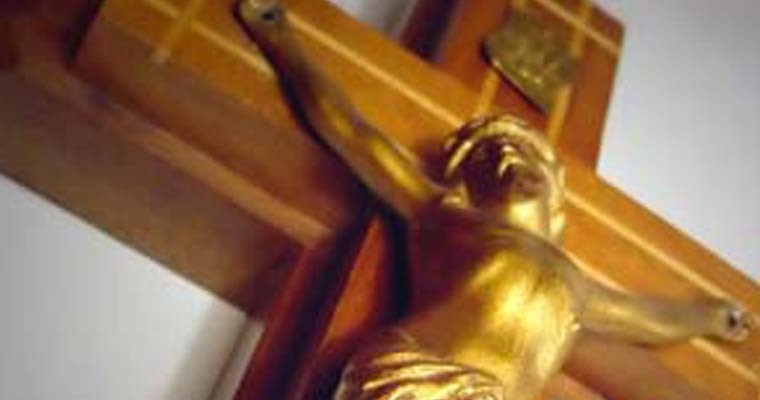Lent is the season of forgiveness. It is a time for “returning to the Lord with our whole hearts” (Joel 2:13). For many of us this means that we need to do what we did or what our parents did for us at our Baptism — turn away from sin and Satan and turn toward life and Christ. As Pope Francis reminded us in his first
Angelus address: “The Lord never tires of forgiving! It is we who tire of asking forgiveness” (Angelus, 17 March 2013). The ways that God forgives us are many:
First and foremost, God forgives us in and through his Son Jesus Christ. The Father “has shown forth his mercy by reconciling the world to himself in Christ and by making peace for all things on earth and in heaven by the blood of Christ on the cross” (Rite of Penance, 1). By his cross and resurrection Christ has saved us from sin and has reconciled us to the Father. The power and working of the Holy Spirit, who proceeds from the Father and the Son, is what enables each of us to experience God the Father’s gift of reconciliation and forgiveness.
Second, we first experience God’s gift of reconciliation to us in baptism. In baptism “our fallen nature is crucified with Christ so that the body of sin may be destroyed and we may no longer be slaves to sin, but rise with Christ and live for God” (RP, 2). In other words, you and I (or our parents for us) said “I do” when we were asked to reject Satan, all his works, and all his empty promises. The same “I do” was said when we were asked to believe in and embrace God, Jesus Christ, the Holy Spirit, and the faith that has been handed on to us by the Church. In baptism, we were made children of God, died and rose with Christ, and became members of his Body, the Church. As a result, we were cleansed of original sin.
Third, because the cross and resurrection of Jesus Christ were the primary ways in which we experienced reconciliation and forgiveness, the Eucharist also plays an important role in the forgiveness of sins. Just as in baptism, the victory of Christ over sin is encountered in the celebration of the Eucharist, where the Passion of Christ is made present and his Body and Blood are offered to God by the whole Church for the salvation of the world (RP, 2). And so, we begin each Mass by asking the Lord to have mercy on us, forgive us our sins, and bring us to everlasting life; this happens in our celebration and reception of the Eucharist.
Fourth, John 20:19-23 reminds us that through the power of the Holy Spirit Jesus Christ himself empowered his Church, namely, his Apostles and their successors, to forgive sins. Why? Simply because they were to carry on his mission, a large part of which not only welcomed sinners, but also reconciled them with God the Father. From the beginning, the Church understood this empowerment in different ways with regard to sin, penance and reconciliation. Suffice it to say, much organic development occurred in which Lent and its three traditional practices of prayer, fasting and almsgiving played an important role. Therefore, sin, particularly serious sin after baptism, is forgiven and we are reconciled through the ministry of the Church.
Fifth, the Sacrament of Penance — par excellance — is the ministry of the Church that provides the type of reconciliation, forgiveness, and healing needed for the wound caused and left by sin. Very often sin does not leave a clean wound, but one that is messy and requires a process of restoration. Although there are a variety of ways in which the wound of sin is treated (Baptism, prayer, fasting, almsgiving, the Eucharist), the Sacrament of Penance helps “those who by grave sin have withdrawn from the communion of love with God” and calls them back to the “life they had lost.” Moreover, it helps “those who through daily weakness fall into venial sins” to “draw strength . . . [and] gain the full freedom of the children of God” (RP, 7). And so, in the Sacrament of Penance not only does the Lord “never tire of forgiving,” but does so in a profound, complete, and beautiful way.
God forgives us in many ways, most especially — through the death and resurrection of his Son, by the power of the Holy Spirit, and through the ministry of the Church — in the Sacrament of Penance. Ask for his forgiveness this Lent and make it a sacred time of complete return to the Lord.
Father Christopher Seibt is parochial vicar of St. Rose of Lima Church in North Syracuse.





